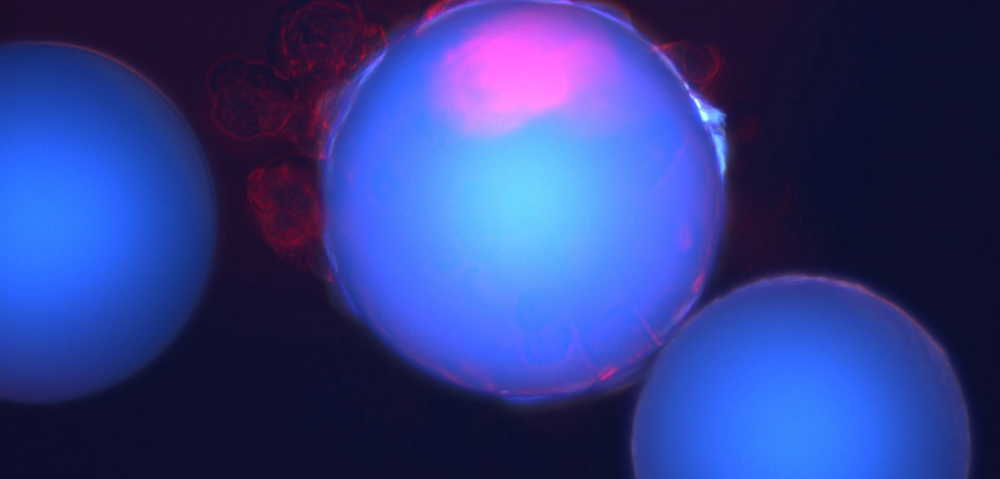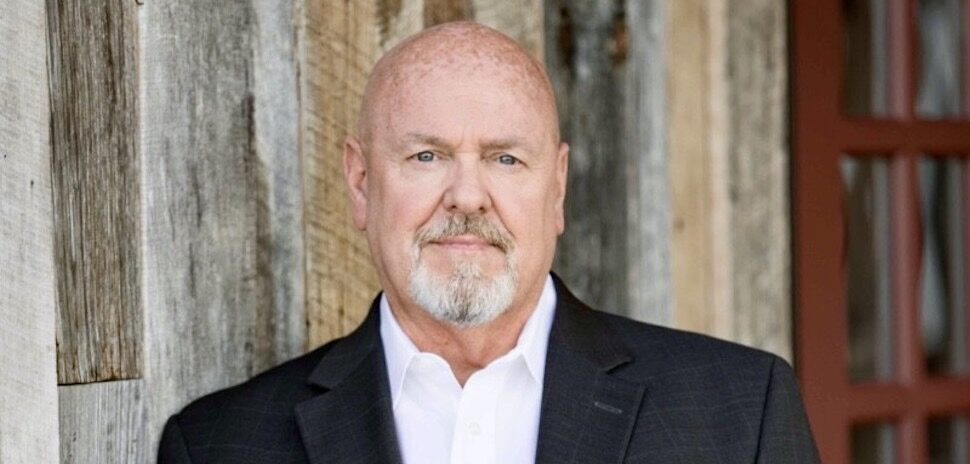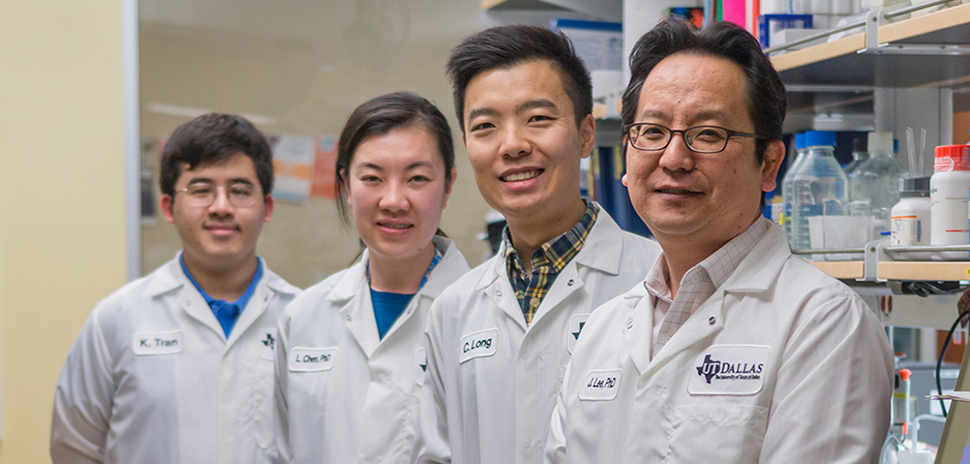
Dr. Jiyong Lee (far right), assistant professor of chemistry and biochemistry, led the cancer cell research team, which included, from left, Kha Andy Minh Tran, Dr. Luxi Chen, and Chao Long. [Photo courtesy of UT Dallas]
UTD TARGETS CANCER STEM CELLS IN ITS RESEARCH
![]() A new technique to isolate aggressive cells believed to form the root of many hard-to-treat metastasized cancers has been developed by a team of researchers at the University of Texas at Dallas.
A new technique to isolate aggressive cells believed to form the root of many hard-to-treat metastasized cancers has been developed by a team of researchers at the University of Texas at Dallas.
The university said in a release that the technique is a major step forward toward creating new drugs that could target those cells.
“Our lab is interested in finding ways to prevent cancer recurrence,” Dr. Jiyong Lee, assistant professor in the Department of Chemistry and Biochemistry in the School of Natural Sciences and Mathematics at UT Dallas, said in a release. “The problem is, not all cancer cells are equal.
“Our lab is interested in finding ways to prevent cancer recurrence.”
Dr. Jiyong Lee
Lee said cancer stem cells are more aggressive than other cancer cells.
“These give rise to secondary tumors, even after the primary tumor has been successfully treated. The cells are notoriously difficult to find, let alone eradicate,” he said.
Lee’s team employed a two-step process to sort through a library of 40,000 chemical compounds, seeking any that would selectively bind to breast cancer stem cells and isolate them from standard breast cancer cells, according to the university.
Five compounds called ligands were identified. The ligands bind specifically to cancer stem cells, and one of them was chosen by the researchers for further study.
To narrow down the ligands, the team used available data on physical factors that differentiate cancer stem cells, and incubated a mix of breast cancer stem cells and non-stem cancer cells together with 40,000 tiny plastic beads. Each bead was coated with multiple copies of one ligand.
The university said that the study’s results were published online recently in Chemistry — A European Journal.
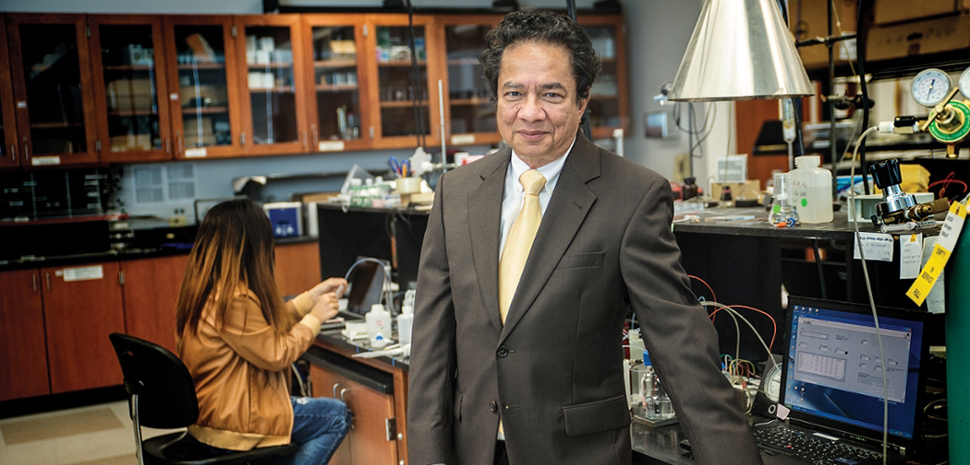
Purnendu “Sandy” Dasgupta, the Hamish Small Chair of Ion Analysis in the university’s Department of Chemistry and Biochemistry. [Photo Courtesy UT Arlington]
UTA CHEMIST NAMED 2018 DISTINGUISHED SCIENTIST BY TEXAS ACADEMY OF SCIENCE
A scientist at the University of Texas at Arlington has been named the 2018 Distinguished Texas Scientist by the Texas Academy of Science.
“He not only challenges, but also inspires his colleagues and students in our college and his research is applied science — it is improving public health on a global scale.”
Morteza Khaledia
The honor went to Purnendu “Sandy” Dasgupta, the Hamish Small Chair of Ion Analysis in the university’s Department of Chemistry and Biochemistry. It’s the most recent honor for Dasgupta, who also was named the recipient of the 2018 American Chemical Society’s Division of Analytical Chemistry Chemical Instrumentation Award.
The Distinguished Scientist honor reflects the recipient’s “distinguished contributions to science through research and publication that has garnered recognition at the national and international level,” the academy said on its website.
“Only elite scientists who have made significant international contributions in their fields are selected for these prestigious awards, and Dr. Dasgupta is truly among the greats,” UTA College of Science Dean Morteza Khaledi said in a release. “He not only challenges, but also inspires his colleagues and students in our college and his research is applied science — it is improving public health on a global scale.”
Previously, Dasgupta was the recipient of the 2017 Talanta Medal, an international award in the field of analytical chemistry, which will be presented in March. Read more about Dasgupta here.
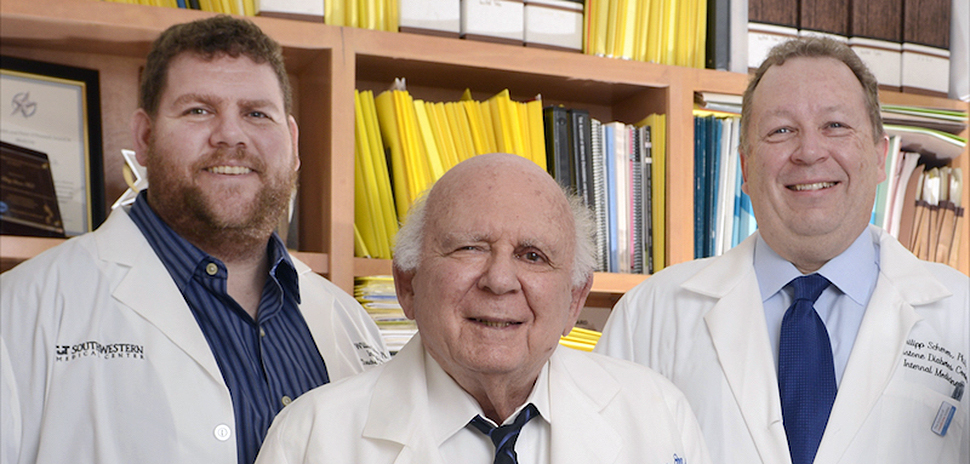
Touchstone Diabetes Center investigators, from left, Drs. William Holland, Roger Unger, and Philipp Scherer are uncovering how drugs used for diabetes benefit heart function. {Photo Courtesy UT Southwestern]
UTSW STUDIES ROLE OF HORMONE IN HEART PROBLEMS OF TYPE 2 DIABETICS
A study by researchers at UT Southwestern Medical Center could help in the development of therapies for diabetic diseases of the heart muscle.
The research showed the role of the hormone glucagon in the development of insulin resistance and cardiac disfunction during Type 2 diabetes, according to UT Southwestern.
“This investigation found that inhibiting glucagon action has potent anti-diabetic effects.”
Dr. Philipp Scherer
The study by the Touchstone Center for Diabetes Research could advance the understanding of how diabetes drugs benefit heart function. That’s especially important because cardiovascular disease is the leading cause of the death in diabetics, UT Southwestern said.
“This investigation found that inhibiting glucagon action has potent anti-diabetic effects. This treatment reduces the potent negative effects that fats have on tissues,” said Dr. Philipp Scherer, director of the Touchstone Center and professor of internal medicine and cell biology at UT Southwestern.
UTSW said that the study, published in Cell Reports, builds on decades of discoveries at the Touchstone Center, which is celebrating its 75th anniversary during 2018.
Find out more about the research here.
MORE RESEARCH NEWS
Dallas-based clinical-stage pharma company Lantern Pharma will join Genomic England’s Discovery Forum industry partnership.
The group seeks to translate groundbreaking research into innovative treatments and, thus, benefiting patients as quickly as possible, according to a release.
Lantern Pharma specializes in precision oncology using artificial intelligence, and is a graduate of the Health Wildcatters mentor-driven seed accelerator in Dallas.
Lantern Pharma said that it is reinventing the process of cancer drug development process by tailoring multiple promising precision drug programs to the right cancer patients through use of the company’s RADR (Response Algorithm for Drug Rescue and Positioning) platform. Find out more here.
READ NEXT
Discovery: Aiding a Fragile Mussel, Trial Seeks Multiple Myeloma Patients, 3-D Universe
Discovery: Sway, TCU Partner on Sports Performance Research & UTA Gets $3.3M for Heart Study
Discovery: New Hope For Extending Brain Function, UTD Testing Unique Education Method for Physics
Discovery: REHEAL Glove Aids Healing, UNT Team Creates Revolutionary Material
Discovery: New Tech to Battle Heart Failure, Crystals Behave Unexpectedly Under Heat
![]()
Get on the list.
Sign up to keep your eye on what’s new and next in Dallas-Fort Worth, every day.










